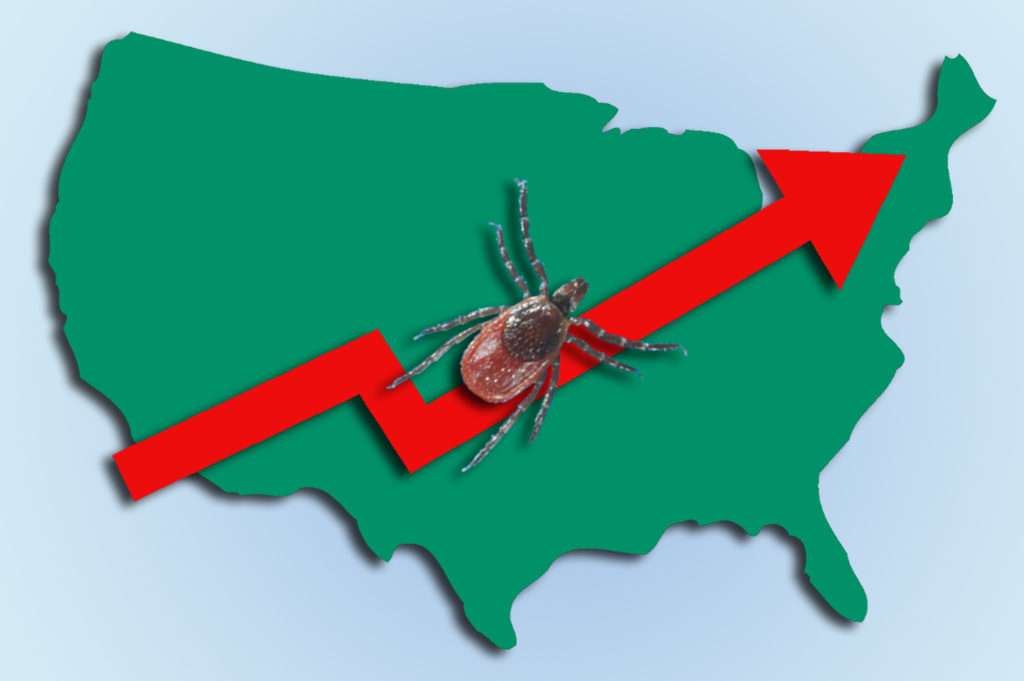Ticks and Lyme Disease: An Increasing Problem in Recent Years
Ticks and Lyme Disease have emerged as a growing concern in recent years, with the number of cases on the rise. These tiny blood-sucking pests not only cause irritation but can also transmit Lyme disease, a debilitating illness. To combat this problem, there are various preventive measures you can take. From using salt and vacuuming to kill ticks inside your house, to choosing organic tick repellents that don’t harm other animals, there are numerous options available. Regularly cutting grass and attracting birds to your yard can also help eliminate the ticks’ habitat. Furthermore, it’s essential to check pets, especially outdoor cats, for ticks. By fencing off your property and cleaning bird feeders regularly, you can prevent wild animals from bringing ticks onto your premises. Natural repellents like cedar oil, citrus spray, apple cider vinegar, geranium oil, lavender, and peppermint can also be effective in repelling ticks. Taking these preventive actions and addressing outdoor areas will contribute to long-term tick control, ensuring the safety and well-being of you and your loved ones.
Ticks and Lyme Disease: An Increasing Problem in Recent Years
Ticks have become more problematic in recent years, posing a threat to both humans and animals. One of the most concerning aspects of ticks is their ability to transmit Lyme disease. Lyme disease is a bacterial infection that can cause a range of symptoms, from mild to severe. If left untreated, it can lead to long-term health complications. Therefore, it is essential to take preventive measures to protect yourself, your family, and your pets from ticks and the diseases they carry.
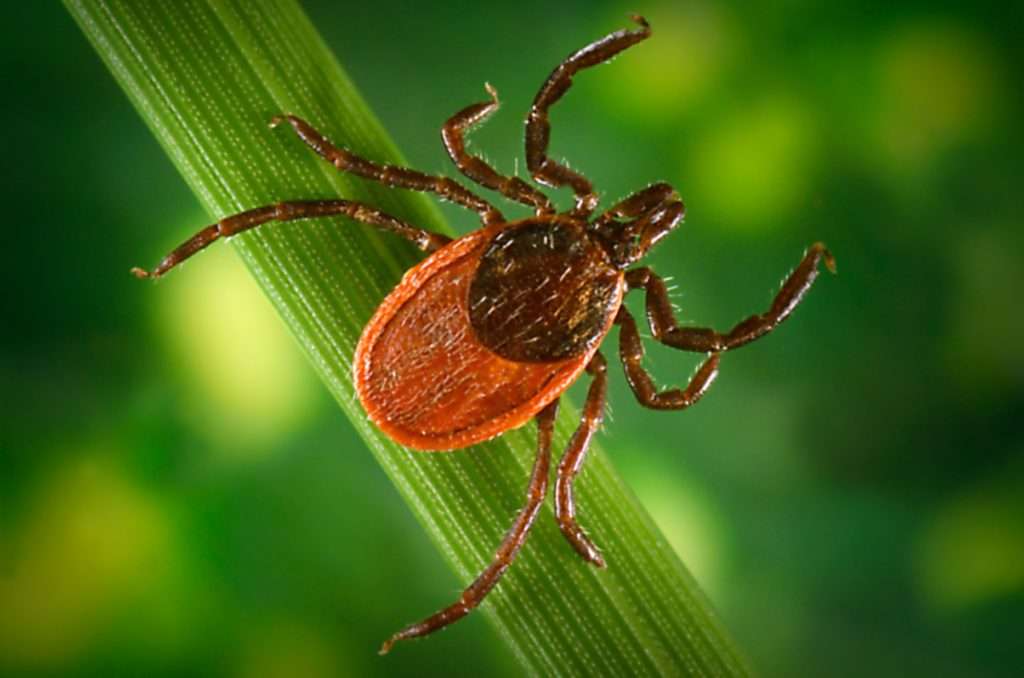
Keeping Your Home Tick-Free
Ticks can find their way into our homes and pose a threat to our health. To combat tick infestations in the house, there are a few simple steps you can take.
Using salt is an effective method to kill ticks. Salt can be sprinkled on carpets, furniture, and other areas where ticks are suspected to be present. Leave it for a few hours and then vacuum thoroughly. The salt will dehydrate the ticks, making them easier to remove and eliminating any chance of them surviving.
Regular vacuuming is also crucial in preventing ticks from settling and reproducing in your home. Make sure to pay extra attention to areas where pets frequent. Dispose of the vacuum bag immediately after use to prevent any ticks from re-entering the house.
Organic Tick Repellents
When it comes to protecting your pets and livestock from ticks, it’s essential to use tick repellents that are safe for them. Organic tick repellents are recommended because they are not harmful to other animals or livestock. These repellents often contain natural ingredients such as essential oils that deter ticks without posing any threats.
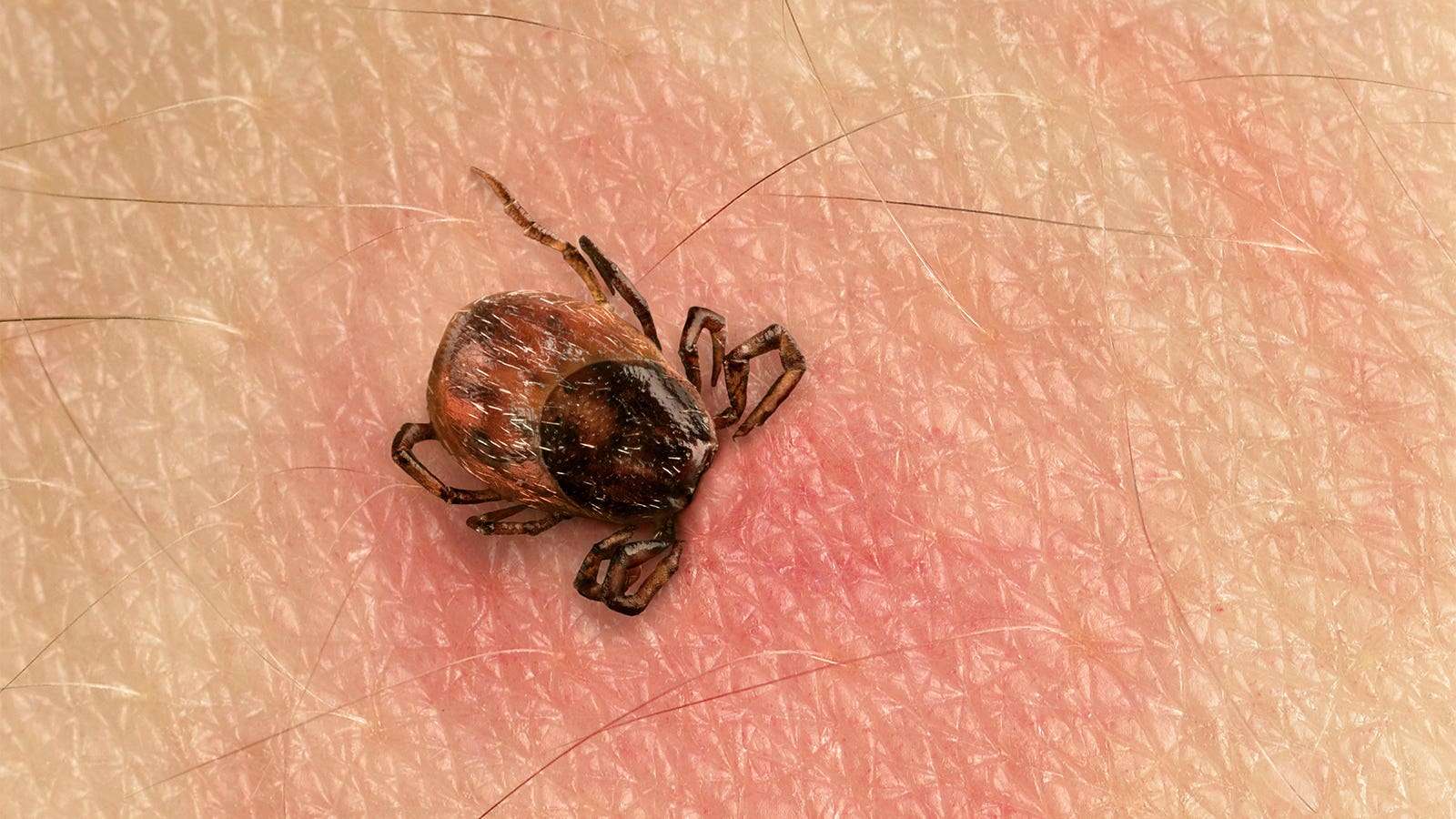
Maintaining Your Yard
Ticks thrive in tall grass and brushy areas, so keeping your lawn well-maintained can significantly reduce the risk of tick infestations. Regularly cutting the grass and removing any overgrown vegetation will eliminate the ticks’ habitat and make your outdoor space less appealing to them.
An additional benefit of maintaining your yard is that it can attract birds to eat the ticks. Birds are natural predators of ticks and can help reduce their population. Providing bird feeders and water sources can encourage birds to visit your yard, creating a natural defense against ticks and other pests.
Protecting Your Pets
Pets, especially cats, are highly susceptible to tick bites as they explore outdoor areas. Regularly checking your pets for ticks is crucial, especially if they have been outside. Pay close attention to areas such as ears, between toes, and under the tail, as ticks prefer warm and hidden spots.
Consider talking to your veterinarian about tick prevention options such as tick collars, spot-on treatments, or oral medications. These products can provide long-lasting protection against ticks and help keep your pets safe.
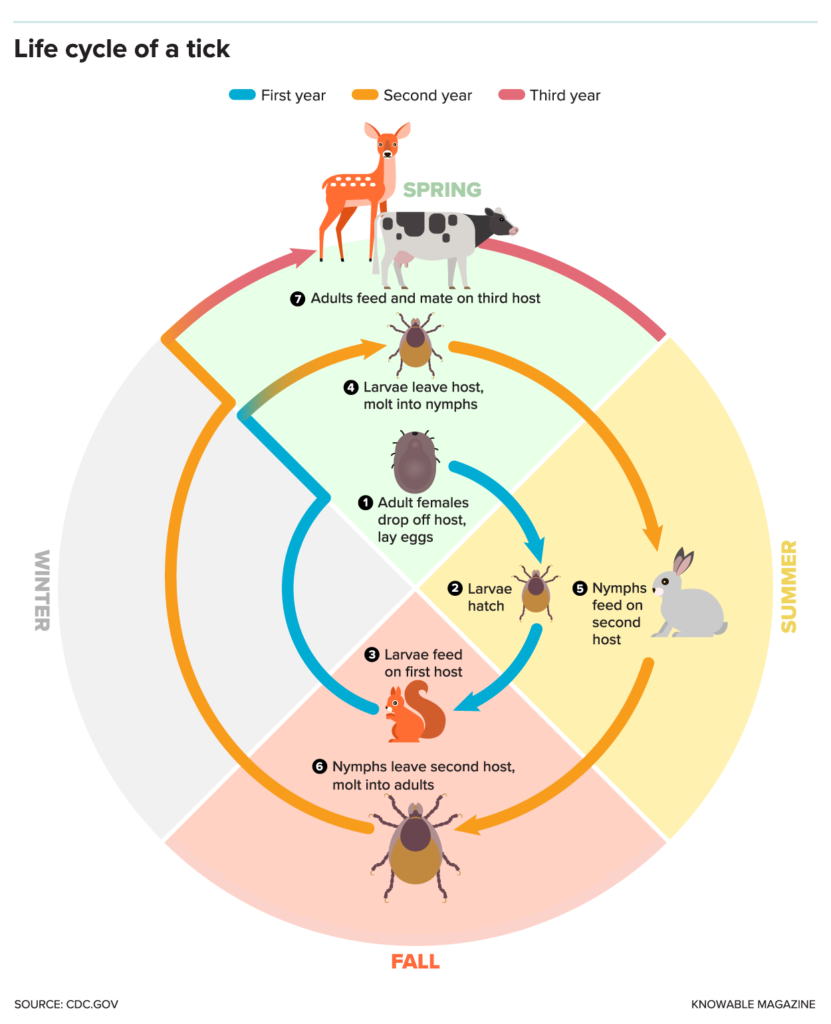
Fencing off Your Property
Preventing wild animals from entering your property is an effective way to reduce the risk of ticks. Wild animals, like deer, can bring ticks onto your property, increasing the chances of a tick infestation. Fencing off your property can act as a barrier, keeping these animals away.
Inspect your property regularly for any gaps or openings in the fencing that could allow wild animals to enter. By maintaining a secure perimeter, you can significantly minimize the risk of ticks entering your space.
Cleaning Bird Feeders
Bird feeders are a popular attraction for birds and can contribute to the beauty of your backyard. However, it’s important to clean them regularly to prevent ticks from infesting the area. Ticks can latch onto birds and drop off in different locations, increasing the risk of tick bites.
Cleaning bird feeders with warm soapy water and scrubbing thoroughly will ensure that any ticks or other pests are removed. Repeat this process regularly to maintain a clean and tick-free environment for both birds and humans.
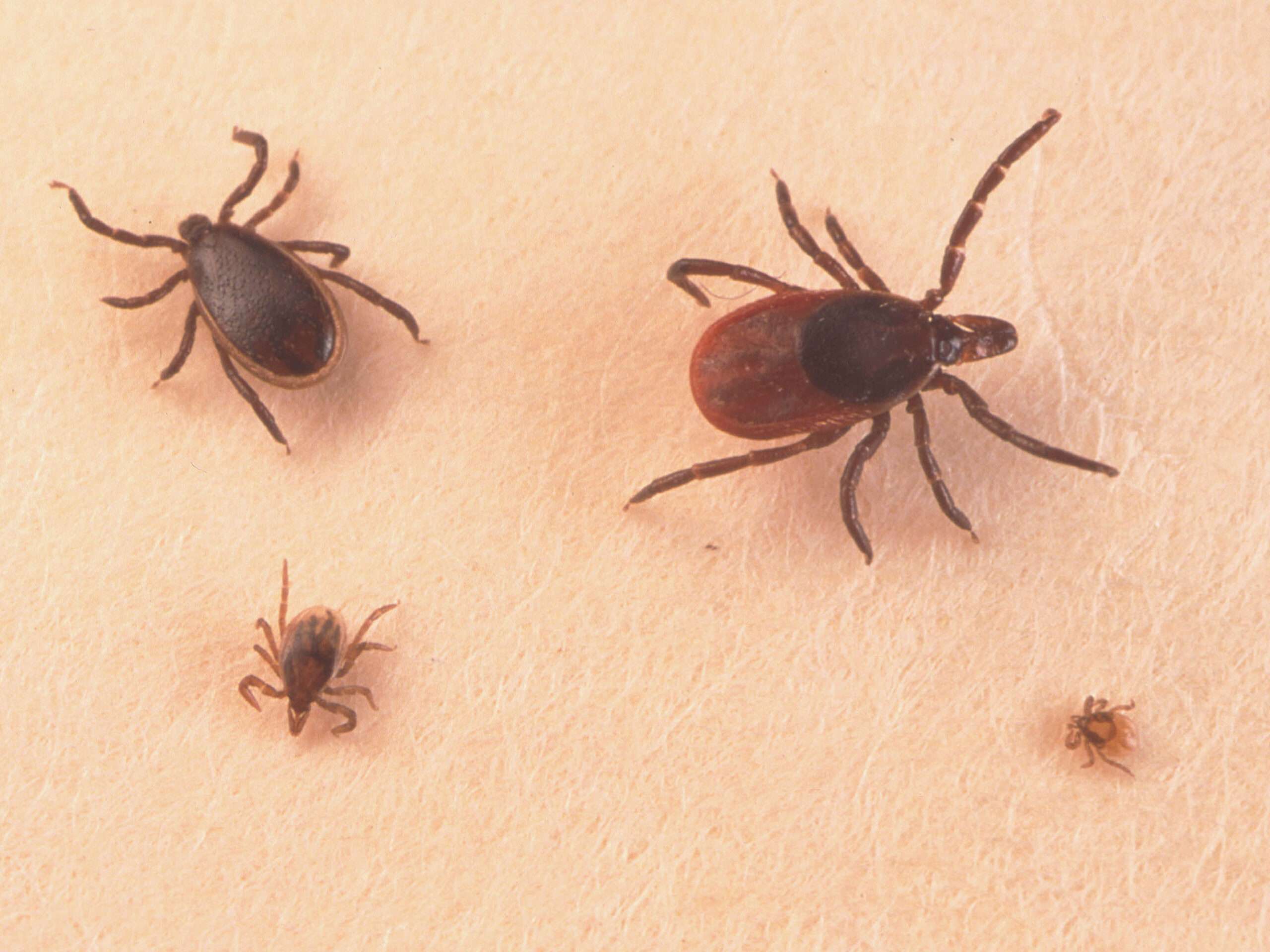
Natural Tick Repellents
For those who prefer natural alternatives, there are several options available to repel ticks effectively. Cedar oil is a natural pesticide and repellent for ticks. It can be used in various forms, such as sprays, shampoos, or dips, to protect both humans and pets from ticks.
Citrus sprays made from lemons or limes can also be an effective natural tick repellent. These sprays can be applied directly to the skin or clothing to deter ticks from biting.
Another natural remedy is apple cider vinegar. When used as a spray, apple cider vinegar can repel ticks and provide a safe alternative to chemical-based repellents.
Other essential oils such as geranium oil and lavender have natural tick-repellent properties due to their strong scents. Applying these oils to the skin or clothing can help deter ticks from approaching.
Peppermint is another natural pesticide that ticks and other bugs dislike. The strong scent of peppermint can keep ticks at bay, making it an excellent addition to your tick control arsenal.
Long-Term Tick Control
Taking preventive measures and addressing outdoor areas are crucial for long-term tick control. By combining the strategies mentioned above, you can significantly reduce the risk of tick bites and tick infestations.
Regularly check yourself, your family, and your pets for ticks after spending time outdoors. Remove any ticks promptly using tweezers, making sure to grasp the tick close to the skin and pull upward with steady pressure.
It’s important to remember that ticks can be active year-round, so maintaining these preventive measures throughout the year is essential.
By staying vigilant and implementing these strategies, you can minimize the likelihood of encountering ticks and protect yourself and your loved ones from Lyme disease and other tick-borne illnesses.
